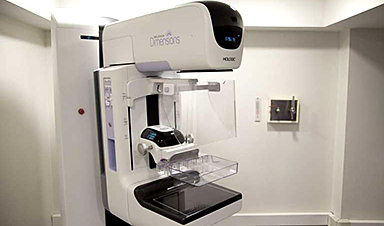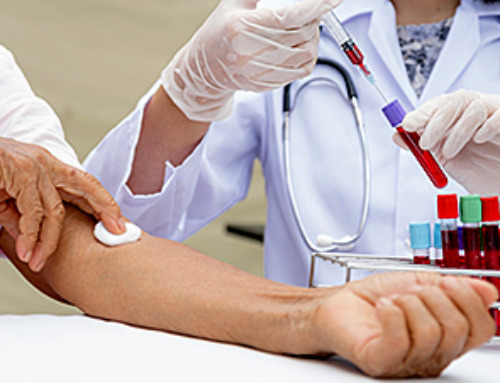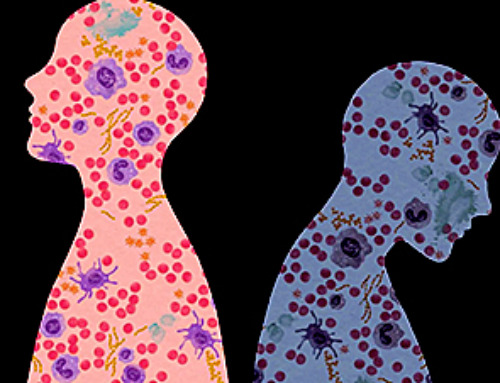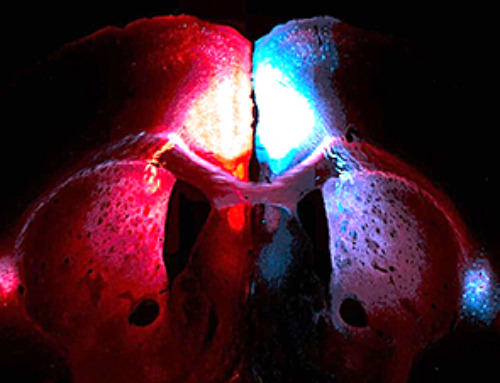AI is detecting tumors more often and earlier in the Dutch breast cancer screening program. Those tumors can then be treated at an earlier stage. This has been demonstrated by researchers led by Radboud university medical center in a study published in The Lancet Digital Health. The use of AI could reduce workload and save millions of euros annually.
Previous research in Sweden had already shown that AI detects breast cancer on mammograms more frequently than radiologists. Moreover, AI can reduce the workload for radiologists. Now, it appears that AI can also replace the second radiologist in the Dutch breast cancer screening program. This even leads to the detection of more tumors—and at an earlier stage—which later turn out to be clinically significant.
AI is more likely to be right
Researchers, led by breast radiologist Ritse Mann of Radboudumc, analyzed 42,000 breast scans. These mammograms were taken as part of the Dutch screening program in the Utrecht region.
Traditionally, two radiologists review these scans, as is standard practice in breast cancer screening. In this study, the researchers also evaluated the scans using AI developed by ScreenPoint Medical. Additionally, they followed the women whose scans were analyzed for nearly four and a half years, with multiple scans available for many of them.
The study showed that one radiologist working with AI detects more tumors than two radiologists alone. Tumors are also identified earlier when AI is involved.
“Sometimes the AI detects a tumor that the radiologists don’t yet recognize as such. We call this a false positive. But often that tumor appears in a later scan after all. Therefore, the AI was right earlier,” Ph.D. candidate Suzanne van Winkel explains.
“By the time the radiologist raises the alarm, it often concerns larger invasive tumors, which definitely need treatment, as early as possible.”
Replacing the second radiologist
In Sweden, AI is already being used to analyze screening mammograms. “They replace the second radiologist with AI. Only if the AI is uncertain does a second radiologist step in,” Mann explains.
“We see that radiologists work well with AI, which leads to more tumors being detected without a significant increase in unnecessary follow-up checks for women.”
The current study shows that AI is also good enough in the Dutch setting to replace the second radiologist in screening scan analysis. This could save several million euros per year. Yet AI is not currently being used in the Netherlands.
“In Sweden, screening is organized regionally, while in the Netherlands it’s organized nationally. That makes implementing AI more logistically challenging here,” says Mann. “The IT infrastructure in the Netherlands is not yet ready. That requires funding.”
More information: AI detects additional clinically relevant breast cancers as an independent second reader within a population-based screening program: a retrospective study, The Lancet Digital Health (2025).
News
This New Blood Test Can Detect Cancer Before Tumors Appear
A new CRISPR-powered light sensor can detect the faintest whispers of cancer in a single drop of blood. Scientists have created an advanced light-based sensor capable of identifying extremely small amounts of cancer biomarkers [...]
Blindness Breakthrough? This Snail Regrows Eyes in 30 Days
A snail that regrows its eyes may hold the genetic clues to restoring human sight. Human eyes are intricate organs that cannot regrow once damaged. Surprisingly, they share key structural features with the eyes [...]
This Is Why the Same Virus Hits People So Differently
Scientists have mapped how genetics and life experiences leave lasting epigenetic marks on immune cells. The discovery helps explain why people respond so differently to the same infections and could lead to more personalized [...]
Rejuvenating neurons restores learning and memory in mice
EPFL scientists report that briefly switching on three “reprogramming” genes in a small set of memory-trace neurons restored memory in aged mice and in mouse models of Alzheimer’s disease to level of healthy young [...]
New book from Nanoappsmedical Inc. – Global Health Care Equivalency
A new book by Frank Boehm, NanoappsMedical Inc. Founder. This groundbreaking volume explores the vision of a Global Health Care Equivalency (GHCE) system powered by artificial intelligence and quantum computing technologies, operating on secure [...]
New Molecule Blocks Deadliest Brain Cancer at Its Genetic Root
Researchers have identified a molecule that disrupts a critical gene in glioblastoma. Scientists at the UVA Comprehensive Cancer Center say they have found a small molecule that can shut down a gene tied to glioblastoma, a [...]
Scientists Finally Solve a 30-Year-Old Cancer Mystery Hidden in Rye Pollen
Nearly 30 years after rye pollen molecules were shown to slow tumor growth in animals, scientists have finally determined their exact three-dimensional structures. Nearly 30 years ago, researchers noticed something surprising in rye pollen: [...]
NanoMedical Brain/Cloud Interface – Explorations and Implications. A new book from Frank Boehm
New book from Frank Boehm, NanoappsMedical Inc Founder: This book explores the future hypothetical possibility that the cerebral cortex of the human brain might be seamlessly, safely, and securely connected with the Cloud via [...]
How lipid nanoparticles carrying vaccines release their cargo
A study from FAU has shown that lipid nanoparticles restructure their membrane significantly after being absorbed into a cell and ending up in an acidic environment. Vaccines and other medicines are often packed in [...]
New book from NanoappsMedical Inc – Molecular Manufacturing: The Future of Nanomedicine
This book explores the revolutionary potential of atomically precise manufacturing technologies to transform global healthcare, as well as practically every other sector across society. This forward-thinking volume examines how envisaged Factory@Home systems might enable the cost-effective [...]
A Virus Designed in the Lab Could Help Defeat Antibiotic Resistance
Scientists can now design bacteria-killing viruses from DNA, opening a faster path to fighting superbugs. Bacteriophages have been used as treatments for bacterial infections for more than a century. Interest in these viruses is rising [...]
Sleep Deprivation Triggers a Strange Brain Cleanup
When you don’t sleep enough, your brain may clean itself at the exact moment you need it to think. Most people recognize the sensation. After a night of inadequate sleep, staying focused becomes harder [...]
Lab-grown corticospinal neurons offer new models for ALS and spinal injuries
Researchers have developed a way to grow a highly specialized subset of brain nerve cells that are involved in motor neuron disease and damaged in spinal injuries. Their study, published today in eLife as the final [...]
Urgent warning over deadly ‘brain swelling’ virus amid fears it could spread globally
Airports across Asia have been put on high alert after India confirmed two cases of the deadly Nipah virus in the state of West Bengal over the past month. Thailand, Nepal and Vietnam are among the [...]
This Vaccine Stops Bird Flu Before It Reaches the Lungs
A new nasal spray vaccine could stop bird flu at the door — blocking infection, reducing spread, and helping head off the next pandemic. Since first appearing in the United States in 2014, H5N1 [...]
These two viruses may become the next public health threats, scientists say
Two emerging pathogens with animal origins—influenza D virus and canine coronavirus—have so far been quietly flying under the radar, but researchers warn conditions are ripe for the viruses to spread more widely among humans. [...]





















